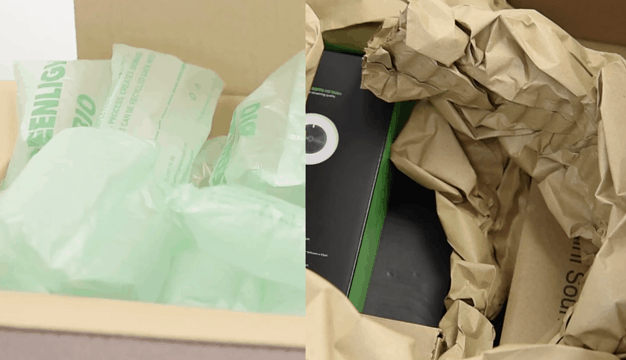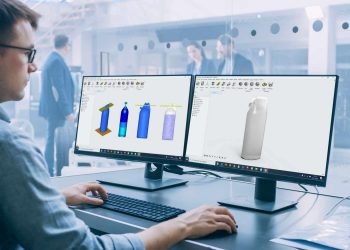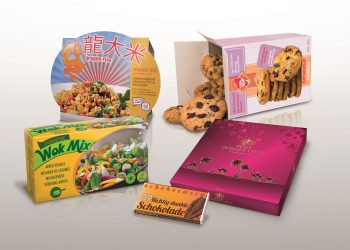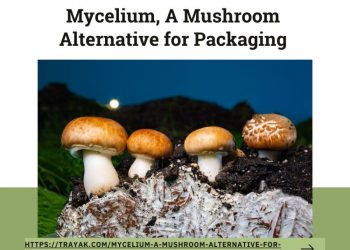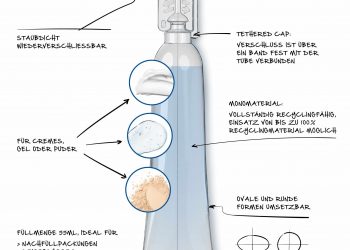The packaging industry is progressing every year in new innovative sustainable alternatives to plastics, but how do businesses choose which of these will work best for them?
For most businesses, becoming more sustainable is blasting it’s way to the top of the “to-do list”, but with several different ‘sustainable’ options, and mixed messages on what is/is not sustainable, how are they meant to choose?
This article will be comparing Biodegradable Plastic Air Cushions to Paper Cushioning options, showing you differences from recycling procedures to CO2 emissions.
Biodegradable Air Cushions
One of the most recent innovations in the packaging industry are biodegradable plastic air cushions which retain the performance of standard air cushions, and businesses have moved quickly to switch to this sustainable new product. However, research is establishing that biodegradable plastics are not as sustainable as portrayed, so this is a substantial hiccup with companies that are genuinely wanting to be more sustainable. Without pointing out the obvious limitations of ordinary and bioplastic air cushions such as their durability during transit, deflated airbags at the bottom of a parcel and the amount needed to protect a product, here we point out the drawbacks that are looming over the bioplastic industry.
In an ideal world, biodegradable plastics are those that can decompose naturally in any environment. The makeup structure of biodegradable plastics makes them easily break down by natural microorganisms, which is why we perceive it as being less harmful to the environment.
As such, biodegradable plastics are perceived to be more eco-friendly due to their environmental benefits. To minimise environmental pollution, this type of plastic is undoubtedly an improvement but it does come with numerous disadvantages.
Biodegradable plastics are made in a way that they can breakdown or degrade when exposed to the sun’s ultra-violet radiation, enzymes, bacteria, water, or wind abrasion. They are made from renewable raw materials or all-natural plant or animal materials such as orange peels, corn oil, switchgrass, soybeans, micro-organisms, or starch.
Categorised mostly into either “Bio-plastics” & “Biodegradable Plastics”.
Bio-plastics are purely made from natural substances such as corn starch and Biodegradable Plastics are made from traditional petrochemicals but designed to break down faster. Both of which do not decompose in the ocean waters as it is too cold, therefore they will either float or create micro-plastics which are harmful to marine life.
Another issue that has cropped up, and something that completely eradicates the purpose of bioplastics, is the confusion when trying to differentiate between ordinary plastics and bioplastics. If these are mixed in the recycling system then the plastic waste cannot be recycled, and the biodegradable recycled content renders it unusable.
It is a fact that biodegradable plastics can breakdown really easily and even in a shorter timeframe but will leave a residue of microplastics. Still, it is also true that a very specific disposal method has to be followed with them. Failing this would mean that the decomposition process will be hampered.
Dumping them directly into the landfills would mean an unnecessary release of methane. The amount of methane produced each year is high. Methane is 84 times more potent than carbon dioxide, and it absorbs heat faster; therefore, it can accelerate climate change.
It’s safe to say that businesses are now being pushed away from bioplastic products because of these crucial disadvantages and the higher costs.
Paper Cushioning
Paper packaging is now widely used in multiple different industries as a sustainable alternative to plastics, for example Bubble wrap is now being replaced by the eco-friendly Paper Bubble Wrap, Plastic Air Bags and Bubblewrap being used as void-fill has been switched to paper loose-fill.
Some of the key benefits of paper packaging:
– 100% Biodegradable
– 100% Compostable
– 100% Recyclable
– Decomposes in the Ocean
– Simple to recycle
– Reduced amount of CO2 emissions in production
Although these are great alternatives and benefits, it has always been a struggle for businesses to switch to paper packaging because of the protection and strength that plastic can provide. Thankfully we now have a solution that fulfils not only the sustainability benefits but also matches and in many cases improves the security of products. Protega Paper cushioning is an alternative to plastic air cushions and other plastic void-fill or cushioning products, it is made of 100% recycled material and is 100% biodegradable, compostable and recyclable. The most unique feature of the Protega Paper is its strength and durability during transit and delivery, it can maintain its posture throughout long journeys and keep the product in its original secure position even when dropped.
Drop tests have been done using different methods of packing with Protega Paper and has shown it can protect anything from a fragile glass and bottle to large industrial equipment. The Protega Paper 125 & 200 are manufactured in the UK by Protega Global and have been designed for ultimate security, the mechanisms inside the machine create multiple unique folds within the paper. Resulting in a thick inner layer and a cushion that can withstand great weight and pressure. Watch this video to see Protega Paper in action vs competitor paper cushioning.
With the overuse of plastics when packaging a product, whether it’s bioplastic or ordinary plastic; we can safely say that Protega Paper does not need to be pushed into all corners to maintain the protection. With our unique ways of packing such as coiling, twisting and careful placement we can also reduce the amount of packaging you use by a substantial amount.
In summary, bioplastics mean well and in some cases have protected the environment from ordinary plastics but overall paper packaging is the obvious choice when it comes to sustainability, protection and customer satisfaction.
Original Source: Protega Global website
Protega Global are manufacturers and stockists of paper packaging and recyclable packaging. The packaging solutions are primarily paper based.
Paper packaging is RECYCLABLE, BIODEGRADABLE and COMPOSTABLE. Around 80% of paper is recycled in the UK and most UK households have ready access to paper and cardboard recycling facilities.

